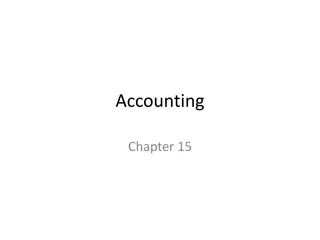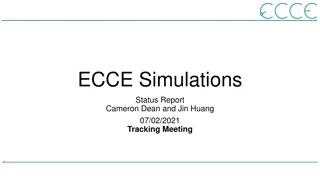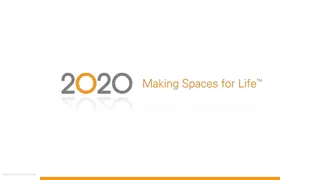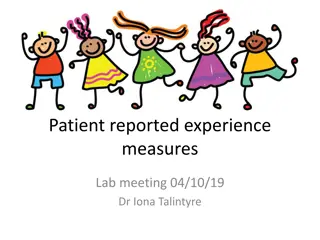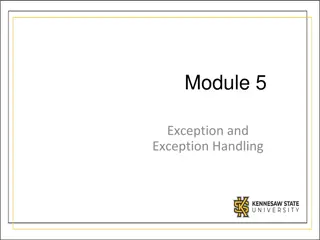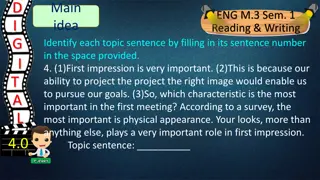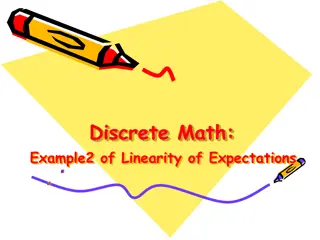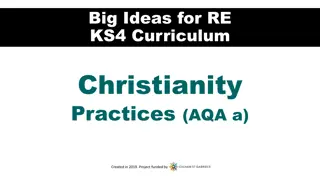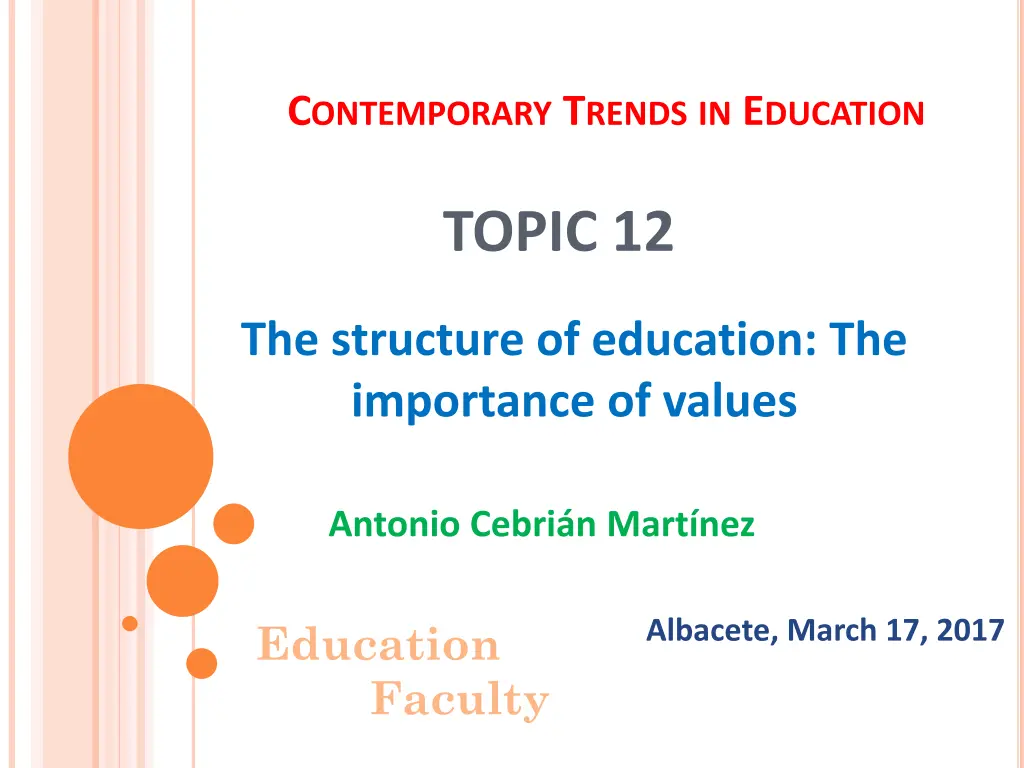
Importance of Values in Educational Structure
Explore the significance of values in education, societal influences, and the transmission of values through various agents and agencies. Learn about the development of attitudes, behavior, and personality shaping through educational actions based on concrete values.
Download Presentation

Please find below an Image/Link to download the presentation.
The content on the website is provided AS IS for your information and personal use only. It may not be sold, licensed, or shared on other websites without obtaining consent from the author. If you encounter any issues during the download, it is possible that the publisher has removed the file from their server.
You are allowed to download the files provided on this website for personal or commercial use, subject to the condition that they are used lawfully. All files are the property of their respective owners.
The content on the website is provided AS IS for your information and personal use only. It may not be sold, licensed, or shared on other websites without obtaining consent from the author.
E N D
Presentation Transcript
CONTEMPORARY TRENDS IN EDUCATION TOPIC 12 The structure of education: The importance of values Antonio Cebri n Mart nez Education Faculty Albacete, March 17, 2017
OVERVIEW 1. Introduction 2. Educative and value orientations 3. Society, values and Education 4. The process of educational action 5. Agents and educational agencies
1. INTRODUCTION Influence of education on the configuration of personality: attitudes and behavior Educational aims built on the concrete values that a society uses for its regulation Included in all elements of the school curriculum explicitly Ensure order and rationality to educational actions They maintain relationships of order and dependence (hierarchy) based on the choice of the subject in an autonomous, reflexive and freeway Importance of different agents and agencies in the transmission of values throughout life, are not imposed but rather learned
2. EDUCATION AND VALUE ORIENTATIONS All human collectivity has certain norms, values, customs, etc. Its transmission allows social and cultural integration to give cohesion and meaning to the social group Complex definition: Ahead of us, to which our behavior shows a preference, oriented towards its attainment" Social learning during the socialization process
2. EDUCATION AND VALUE ORIENTATIONS Two senses of the meaning of value: Objective Everything that is appreciated and towards which the subject is directed Value themselves Generality and timelessness Beauty, health, solidarity, etc. or perfective dimension Subjective or evaluative dimension Individual and personal action when choosing a certain value Every day and often repeated tasks Allows the adaptation of the subject to the world Implementation of attitudes
2. EDUCATION AND VALUE ORIENTATIONS Attitudes as learned predispositions that drive the subject to manifest or to act in a certain way. Three dimensions: Cognitive component: beliefs or information used to perform the value evaluation Affective component: feelings and emotions that elicit the choice of a value Behavioral component: practical consequence of the value choice
2. EDUCATION AND VALUE ORIENTATIONS Norms as ways of relating people (social situations) keeping in mind the values. Moreover: They are indispensable for socialization and coexistence Fundamental role of the family in learning Morals as the set of rules that a society, at a specific time, set to organize coexistence Moral education seeks to explain the relationships that are established between norms and values Citizenship as the behavior of the person who fulfills their duties as a citizen, respects the laws and thus contributes to the correct functioning of society and to the well-being of other members of the community Ethics as a theoretical reflection to understand moral behaviors, that is, reasons justifying actions, seeking ideal patterns of desirable behaviors
3. SOCIETY, VALUES AND EDUCATION Thanks to family and education, the subjects integrate into society after the inclusion of certain ways of thinking Both institutions have lost power and socializing influence because of ICT Schools have similar importance on intellectual aspects of education and social skills In addition, the school should have the needs and interests of the community at heart Fundamental civic formation generates prospects of commitment and participation in public affairs
3. SOCIETY, VALUES AND EDUCATION Transversal themes: Included with LOGSE (1990). Purpose: to expand the possibilities of learning to live with others, sharing common values Do not focus exclusively on cognitive content They facilitate the introduction of more sensitive didactic proposals with the social and cultural sphere Education for equal opportunities between the sexes Environmental education Consumer Education Traffic education Education for Peace Civic and moral education Education for health Education about sexuality
4. THE PROCESS OF EDUCATIONAL ACTION Education as a process in which the subject adapts to the educational purposes proposed by a society at a particular historical moment Education as "action and effect of educating" Educational action includes objectives, competencies, contents, methodology, standards, evaluation criteria It also includes the study of the teaching and learning process
4. THE PROCESS OF EDUCATIONAL ACTION Educational objectives: They are based on educational purposes They follow an idealized model of being human and society What you want to achieve through educational action Based on values Contribute to the progressive improvement of the human being taking into account social and cultural determinants They can be hierarchically ordered from the general to the specific Used by the teacher in the classroom and included in educational laws Linked to psychological conceptions, current cognitive (capacities) Each area and each educational stage has its own general objectives
4. THE PROCESS OF EDUCATIONAL ACTION Competences: Capacities to apply, in an integrated way, the contents of each teaching and educational stage, in order to achieve the adequate realization of activities and the effective resolution of complex problems Contents: Sets of knowledge, abilities, skills and attitudes that contribute to the achievement of the objectives of each teaching and learning stage and to the acquisition of competences They are ordered in subjects, which are classified in, areas, ambits and modules according to teaching, the educational stage or the programs in which the students participate Didactic methodology: It includes both the description of teaching practices and the organization of teachers' work Standards: Evaluable learning outcomes Evaluation criteria: They value the degree of acquisition of the competences and the achievement of the objectives of each teaching and educational stage
4. THE PROCESS OF EDUCATIONAL ACTION Teaching: Teacher's task concretized in the didactic strategy designed to achieve the objectives, that is, that the student learns Learning: After teacher action Functionality: solve problematic situations of daily life to advance in the understanding of reality Social learning: medium influences human behavior, that is, social influences help explain the learning of the subject Significant learning: new information can establish relationships with what was already known, resulting in a cognitive imbalance that, in turn, generates the rearrangement of knowledge schemes so that new information is assimilated and learning occurs (Piaget)
5. AGENTS AND EDUCATIONAL AGENCIES Educational agent: instance that develops an educational action on a subject allowing the development of changes in behavior congruent with predetermined objectives (learning) Educational agencies: set of educational agents (family, school, teaching staff, friends, environment, etc.) Educational potential rests with the subject object of the action, since they endow meaning and educational content to some influences and not others The characteristics of the subject, including his ability to open and communicate, are fundamental
5. AGENTS AND EDUCATIONAL AGENCIES Family: Primary socialization agent Educational effects determining the acquisition of values Knowledge society has transformed family structures and relationships (complexity and heterogeneity) Different types of family other than the standard" form Increasing importance of the school environment in the social training of individuals (extra-curricular cases), following erosion of the traditional functions of the family At times, there is confusion and lack of understanding between family and school Central role in social organization It should not neglect the functions that are its own
5. AGENTS AND EDUCATIONAL AGENCIES Teaching staff Person who has a professional responsibility to educate or help shape the personality of the child Knowledge, orientation, mentoring, planning, etc., always taking into account social and cultural implications Complex task: intervention of multiple professionals, ideological and social dilemmas, decision making, etc. Teaching roles (Sarramona): Curriculum design and development Tutorial Relations with the environment Permanent education Sometimes emotional distress (burnout) for psychological disorders such as stress, anxiety, depression, etc., or lack of professional recognition, competition with other educational agencies, weak initial and permanent training, etc.
5. AGENTS AND EDUCATIONAL AGENCIES School: Social institution that allows the transmission of knowledge, professional training and the inclusion of cultural values and norms Functionalist perspective: socialization through the transmission of cultural values to the acquisition of social roles for a harmonious functioning of society (social reproduction) Conflictive perspective: mechanism that reproduces social inequalities after accepting the existing social order (segregation, influence of the social environment, "merits") Comprehensive school: unique curriculum with capacity to adapt to the educational needs of students, same center and same title for all
5. AGENTS AND EDUCATIONAL AGENCIES Avoid differences: Ethnic: scarce resources and located in the poorest areas of the cities ("situational effect of the school") Gender: traditionally more important to male education (guarantee equal opportunities) Aspects of conflict: market mechanisms, freedom of school elections, equality of opportunities etc. Parentocracy or ability of parents to choose their children's school. Usually it has more to do with the desires and economic resources of families than with a real capacity or motivation to guide the formation of their children It is shown that the social group to which the subject belongs plays a fundamental role



